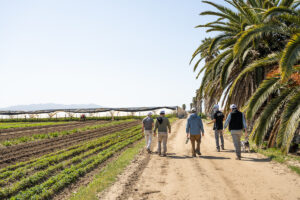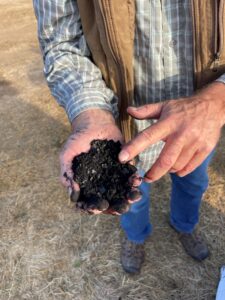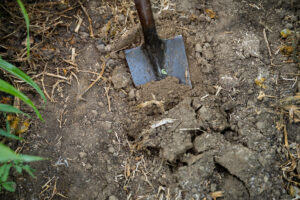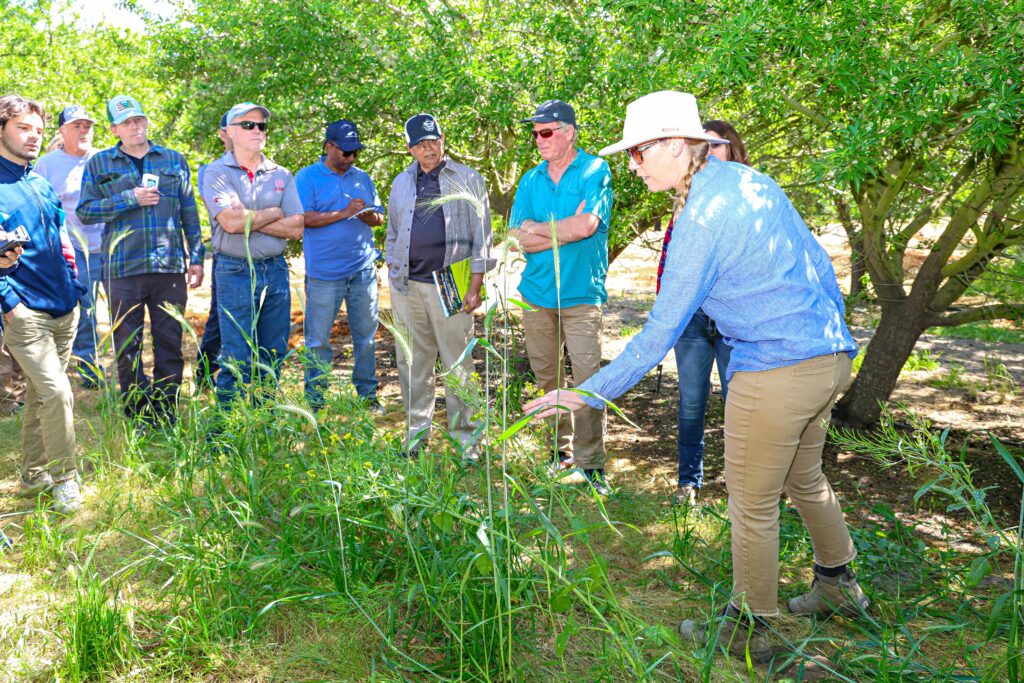Creating a Circular Economy for Healthy Soil
 Imagine a world where we stopped removing materials from the earth and later threw them away as waste. What if we encouraged a circular economy in California that eliminated this waste by reusing materials in ways that built healthy soil and helped our state tackle climate change, biodiversity loss, and soil/water pollution? This would be a win-win strategy for our California communities, farmers, and the environment – as well as the nation and world that relies on our 400 food products.
Imagine a world where we stopped removing materials from the earth and later threw them away as waste. What if we encouraged a circular economy in California that eliminated this waste by reusing materials in ways that built healthy soil and helped our state tackle climate change, biodiversity loss, and soil/water pollution? This would be a win-win strategy for our California communities, farmers, and the environment – as well as the nation and world that relies on our 400 food products.
Ultimately, farmers and agricultural professionals are the key facilitators for circular economies, as they’re on the front lines stewarding the land, working with nature, and using natural resources to make a living. Whether they’re chipping wood prunings and applying it as mulch, or incorporating manures into their fields, these practices feed the soil, support the ecosystem, and find solutions for repurposing these materials in ways that benefit their farm’s viability and our planet’s health.
In a circular economy, these agricultural practices are an alternative to burning or hauling these materials away to the dump by putting them back into the earth.
American Farmland Trust (AFT) is proud to support regenerative agricultural practices, such as biochar application, whole orchard recycling, and compost – all of which build more climate-resilient soils that conserve natural resources, require fewer chemical inputs, and reduce greenhouse gas emissions.
In many ways, AFT is a bridge between California’s agricultural community and these evolving agricultural practices. Our research informs our outreach, and we share our findings to encourage more adoption of these earth-friendly practices throughout the Golden State. We help farmers and agricultural professionals understand the economic and environmental benefits of these practices, as well as where to find compost, biochar, mulch, and other materials.
Biochar and Whole Orchard Recycling
Circular economies can only function at scale with established and cost-effective supply chains, and there needs to be a demand for the products.
 Consider biochar, which has been used for centuries as a soil amendment by Indigenous people, reports this blog post. There have been more than 20,000 peer-reviewed studies about biochar over the last 20 years. The research shows biochar amendments can sequester carbon, increase soil organic matter, improve soil structure, increase water-holding capacity, and reduce greenhouse gas emissions. However, there hasn’t been much recognition of the value of biochar applications within the agricultural sector yet.
Consider biochar, which has been used for centuries as a soil amendment by Indigenous people, reports this blog post. There have been more than 20,000 peer-reviewed studies about biochar over the last 20 years. The research shows biochar amendments can sequester carbon, increase soil organic matter, improve soil structure, increase water-holding capacity, and reduce greenhouse gas emissions. However, there hasn’t been much recognition of the value of biochar applications within the agricultural sector yet.
That’s why our California team and the University of California Merced are conducting a series of multi-year, on-farm trials looking at the social, economic, and environmental impacts associated with biochar applications.
We also are taking a close look at the materials and processes used to produce them with supply chain partners like the carbon removal company Corigin. This allows us to study biochar’s potential impacts on greenhouse gas emissions, water resilience, nutrient management, and living soils.
AFT and our partners held a May 2024 biochar workshop for orchard growers at Pacific Farming Company to share our initial findings and resources.
Read more in West Coast Nut.
According to Corigin’s CEO Mike Woelk, biochar has the potential to allow California’s millions of tons of crop residual biomass with little economic value, like shells, pumices, and culled trees, to be upcycled into soil amendments and plant growth enhancers. This would help increase the state’s soil health, reduce orchard water use, and decrease synthetic chemical use.
“A two-fold biochar conundrum exists, however,” says Woelk, “Production capacity throughout California is limited in scale and the methods of applying biochar into currently producing orchards and vineyards are yet to be optimized. Corigin is working to address the production challenges by processing orchard wastes into biochar, while groups like American Farmland Trust are working to show farmers how to benefit from biochar applications.”
See AFT’s biochar tool kit for the agricultural industry with taped webinars, decision support tools, product analytics, and more.
Expanding Compost Usage with Closed-Loop Management
Increasing California agriculture’s use of compost and biochar will require investments in production facilities and market development.
Tanya Gemperle and her father Rich have long used tons of composted chicken manure from their Gemperle Family Farms’ egg business in Turlock to spread around their almond orchard. 
As they explain in our farmer profile, these compost applications improve their soil health by increasing microbial activity, nutrient availability, soil moisture retention, and enhanced soil structure.
In fact, the compost’s benefit to soil health allowed Rich to reduce his applications of UN32 and CAN17 fertilizers and still meet his crop nutrient demand.
Despite these benefits, many local farmers struggle to find compost for their own operations, so the Gemperle family decided to investigate ways they could provide commercial compost production in their area and expand these compost benefits.
They applied for and received a nearly $4 million grant from the U.S. Department of Agriculture to build a chicken litter pellet fertilizer facility. The Gemperles plan to produce 50,000 tons of fertilizer within the first two years, providing a domestic fertilizer option for about 100 local producers.
Investing in developing facilities that convert on-farm products like Gemperle’s chicken manure into a commercial product has multiple benefits. It transforms this waste back into valuable plant nutrients and contributes to a more circular economy within the agricultural system.
As Director of Sustainability Tanya Gemperle-Goncalves explains, “Now instead of just recycling the nutrients on our own orchards, we will be able to provide a local, affordable source of fertilizer to farmers in the area.”
AFT was honored to write a letter of support during the USDA grant application process for the Gemperle Family Farms. We’re big supporters of their regenerative agricultural practices.
 We not only created this farmer profile that documents the economic and environmental benefits of the farm’s soil health practices. AFT is also working with the Gemperles on a five-year field trial about cover crops grown at California orchards, which is funded by the U.S. Department of Agriculture. Recently, about 30 farmers and agricultural professionals learned about this project at a cover crop workshop.
We not only created this farmer profile that documents the economic and environmental benefits of the farm’s soil health practices. AFT is also working with the Gemperles on a five-year field trial about cover crops grown at California orchards, which is funded by the U.S. Department of Agriculture. Recently, about 30 farmers and agricultural professionals learned about this project at a cover crop workshop.
Going Forward
Imagining a circular economy is a positive first step towards helping the Golden State upcycle its agricultural byproducts to reduce waste and benefit farms and our planet. But California must also continue to invest in an efficient supply chain for compost, biochar, mulch, and other soil building products.
To encourage more demand, the California Department of Food and Agriculture’s Healthy Soils Program and the USDA-Natural Resources Conservation Services’ Environmental Quality Incentives Program provide grants that reduce a farmer’s costs to implement agricultural practices with a public environmental benefit. These practices support reducing water consumption, cutting greenhouse gas emissions, and promoting better air and water quality. And that benefits us all.
The California Department of Food and Agriculture considers the topic of “Circular Economy for Healthy Soils” so important for the state that it is the theme of its 2024 Healthy Soils Week campaign. Learn what other organizations are doing and find resources.

